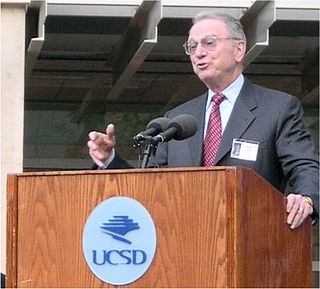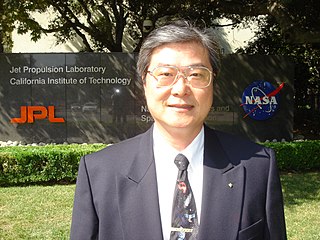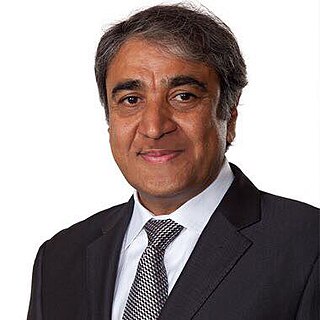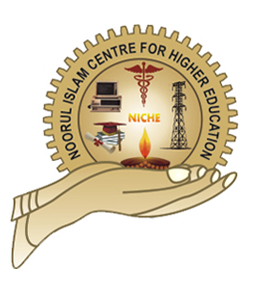
Geomatics is defined in the ISO/TC 211 series of standards as the "discipline concerned with the collection, distribution, storage, analysis, processing, presentation of geographic data or geographic information". Under another definition it "consists of products, services and tools involved in the collection, integration and management of geographic data". It includes geomatics engineering and is related to geospatial science.
Forfás was the national policy advisory board for enterprise, trade, science, technology and innovation in Ireland. The agency was established in January 1994 under the Industrial Development Act, 1993 and was run by a board appointed by the Minister for Jobs, Enterprise and Innovation, to whom the agency is responsible. Forfás was dissolved on 1 August 2014 and its functions were transferred to the Department of Jobs, Enterprise and Innovation, Enterprise Ireland, the Industrial Development Authority and the Health and Safety Authority.
Simon "Si" Ramo was an American engineer, businessman, and author. He led development of microwave and missile technology and is sometimes known as the father of the intercontinental ballistic missile (ICBM). He also developed General Electric's electron microscope. He played prominent roles in the formation of two Fortune 500 companies, Ramo-Wooldridge and Bunker-Ramo.

Raghunath Anant Mashelkar, also known as Ramesh Mashelkar, is an Indian chemical engineer and a former Director General of the Council of Scientific and Industrial Research (CSIR), a chain of 38 publicly funded industrial research and development institutions in India. He is a Fellow of the Royal Society, Fellow of the Royal Academy of Engineering (FREng), and Fellow of the Institution of Chemical Engineers (FIChemE)

Irwin Mark Jacobs is an electrical engineer, a co-founder and former chairman of Qualcomm, and chair of the board of trustees of the Salk Institute.
Peter Edward Glaser was a Czechoslovakian-born American scientist and aerospace engineer. He served as Vice President, Advanced Technology (1985–94), was employed at Arthur D. Little, Inc., Cambridge, MA (1955–94); subsequently he served as a consultant to the company (1994–2005). He was president of Power from Space Consultants (1994–2005). Glaser retired in 2005.
National Science Week refers to series of science-related events for the general public which are held in a specific countries during a designated week of the year. The aim of such science weeks is to engage and inspire people of all ages with science, engineering and technology.

The United States President's Council of Advisors on Science and Technology (PCAST) is a council, chartered in each administration with a broad mandate to advise the President on science and technology. The current PCAST was established by Executive Order 13226 on September 30, 2001, by President George W. Bush, and was most recently re-chartered by President Obama's April 21, 2010, Executive Order 13539.

Curtis Raymond Carlson was president and CEO of SRI International from 1998 to 2014 and is a prominent technologist and pioneer in developing and using innovation best practices. While CEO of SRI International, revenue tripled to $550 million per year and tens of billions of dollars of new marketplace value was created, such as through Siri, an SRI spin-off company that was bought by Steve Jobs at Apple. While Carlson was CEO Mayfield Ventures partner, David Ladd, said, “SRI is now the best enterprise at turning its technology into economic value.”

The Institution of Chemical Engineers (IChemE) is a global professional engineering institution with over 40,000 members in over 120 countries worldwide. It was founded in 1922 and awarded a Royal Charter in 1957.

The A. James Clark School of Engineering is the engineering college of the University of Maryland, College Park. The school consists of fourteen buildings on the College Park campus that cover over 750,000 sq ft (70,000 m2). The school is in close proximity to Washington, D.C. and Baltimore, as well as a number of technology-driven institutions.

Wai-Chi Fang is a Taiwanese engineer.

Pradeep Kumar Khosla is an academic computer scientist and university administrator. He is the current chancellor of the University of California, San Diego. He was appointed to the position by the president of the University of California, Mark Yudof, on May 3, 2012. His term began August 1, 2012, following the resignation of the previous chancellor Marye Anne Fox.

Ray O. Johnson, an American executive focused on business, innovation, and diversity, is the former Senior Vice President and Chief Technology Officer of the Lockheed Martin Corporation. Johnson guided the Corporation’s technology vision and provided corporate leadership in the strategic areas of technology, engineering, production operations, supply chain, program management, and sustainment, which included more than 72,000 people working on more than 4,000 programs that provided some of the nation’s most vital security systems. Johnson has a proven track record in managing large P&L organizations, developing and executing growth and technology strategies, and achieving operational excellence in diverse business environments.

Charbel Farhat is the Vivian Church Hoff Professor of Aircraft Structures in the School of Engineering at Stanford University, where he is also Chairman of the Department of Aeronautics and Astronautics, Professor of Mechanical Engineering, Professor in the Institute for Computational and Mathematical Engineering, Director of the Army High Performance Computing Research Center, and Director of the King Abdulaziz City of Science and Technology Center of Excellence for Aeronautics and Astronautics. He also serves on the United States Air Force Scientific Advisory Board (SAB), and on the Space Technology Industry-Government-University Roundtable. He has previously served on the technical assessment boards of several national and international research councils and foundations, and on the United States Bureau of Industry and Security's Emerging Technology and Research Advisory Committee (ETRAC) at the United States Department of Commerce.

Robert D. Briskman is Technical Executive of Sirius XM Radio.

The National Institute for Space Research is a research unit of the Brazilian Ministry of Science, Technology and Innovation, whose main goals are fostering scientific research and technological applications and qualifying personnel in the fields of space and atmospheric sciences, space engineering, and space technology. While INPE is the civilian research center for aerospace activities, the Brazilian Air Force's General Command for Aerospace Technology is the military arm. INPE is located in the city of São José dos Campos, São Paulo.

Noorul Islam Centre for Higher Education (NICHE), formerly Noorul Islam College of Engineering, is a private co-educational Institution in Kumarakovil, Thuckalay, Kanyakumari District, Tamil Nadu, India. The institution was founded in 1989 by Dr. A.P. Majeed Khan and it was declared as a Deemed to be University by the Ministry of Human Resource Development, Govt. of India at 8 December 2008. It is now run by Noorul Islam Centre for Higher Education (NICHE) Society.

James Julius Spilker Jr. is an American engineer and a Consulting Professor in the Aeronautics and Astronautics Department at Stanford University. He was one of the principle architects of the Global Positioning System (GPS), and a co-founder of the space communications company Stanford Telecommunications and is currently executive chairman of AOSense Inc., Sunnyvale, CA.
Madhu Bhaskaran is an engineer and Professor at RMIT University. She co-leads the Functional Materials and Microsystems Research Group at RMIT University She won the APEC Aspire prize in 2018 for her development of "electronic skin".



















